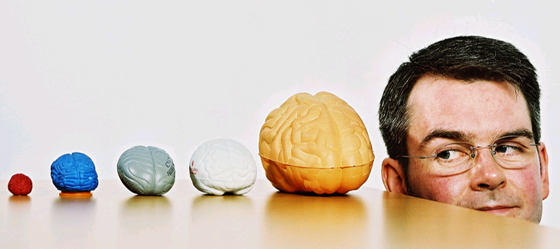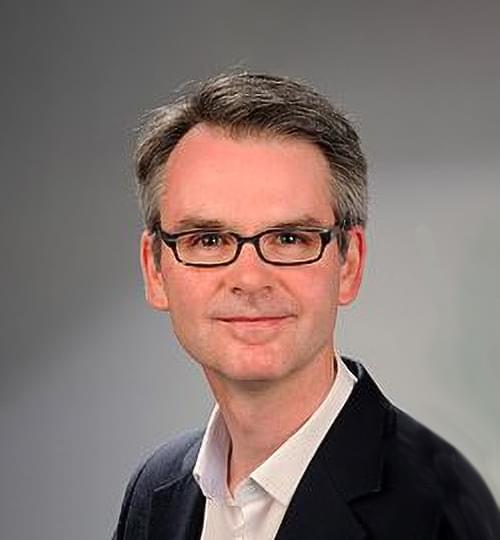Professor Claus C. Hilgetag
The article Study provides new insights into brain organization said
“Scientists have provided new insights into how the brain is organized — knowledge which could eventually inform diagnosis of and treatments for conditions like Alzheimer’s Disease and autism.A study by Newcastle University and the International University Bremen, Germany, debunked a prevailing theory that the nervous system should have mainly very short nerve fibre connections between nerve cells, or neurons, to function at its most effective.
Co-researcher Dr Claus Hilgetag, an associate professor with International University Bremen’s School of Engineering and Science, said: ‘Many people have suggested that the brain is like a computer and that for optimum effectiveness it should have mainly short connections between the nerve cells. Our research suggests that a combination of different lengths of neural projections is essential.
‘It is particularly interesting that we made the same observations in both the primate and the worm as their brains are very different in terms of shape and size.’”

Professor Claus C. Hilgetag, Ph.D. is Assistant Professor of Neuroscience, School of Engineering and Science, International University Bremen, Germany, and Senior Research Associate, Department of Health Sciences, Boston University, USA.
Claus is involved in experimental as well as computational work aimed at understanding the global structural organization and the functional specialization of neural systems in the brain. For example, he is engaged in collaborative projects that attempt to understand the factors shaping cortical architecture, and to identify regularities and peculiarities in the complex patterns of connections linking individual brain regions. In further studies, he is cooperating with colleagues in Germany and the US to delineate distributed brain networks responsible for spatial attention and to comprehend neural mechanisms underlying intact, lesion-impaired and restored spatial attentional behavior.
He coauthored Non-Optimal Component Placement, but Short Processing Paths, due to Long-Distance Projections in Neural Systems Networks, Functional Circuitry Underlying Visual Neglect, Role of Mechanical Factors in the Morphology of the Primate Cerebral Cortex, Graded Classes of Cortical Connections: Quantitative Analyses of Laminar Projections to Motion Areas of Cat Extrastriate Cortex, Developmental Mechanics of the Primate Cerebral Cortex, Organization, Development and Function of Complex Brain Networks, and Axiomatic Scalable Neurocontroller Analysis via the Shapley Value. Read his full list of publications!
Claus completed his Undergraduate studies in Neurophysiology, Artificial Intelligence, and Psychology, Edinburgh University, UK in 1992. He earned a MS in Biophysics, Humboldt-University Berlin, Germany in 1994. He completed his Graduate studies, Oxford University Laboratory of Physiology, UK in 1994. He earned a PhD in Computational Neuroscience, University of Newcastle upon Tyne in 1999. He completed his Postdoctoral research fellowship, Boston University School of Medicine, USA in 2001.
